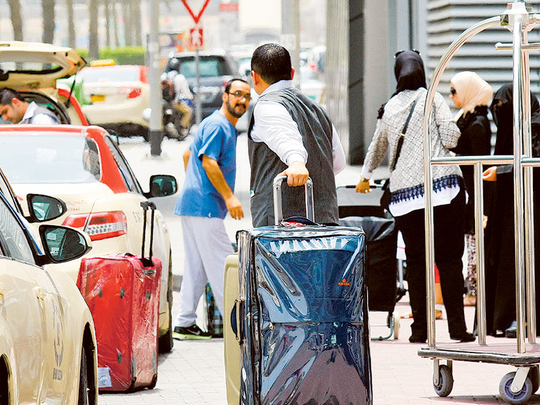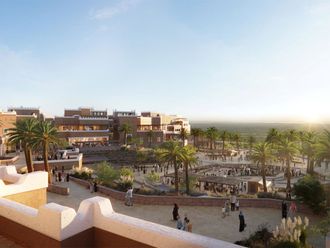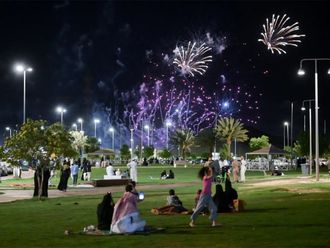
Dubai: The UAE ranked first in a global assessment of travel destinations with the best developed Halal ecosystems, according to the 2016-2017 Global Islamic Economy Report developed and produced by Thomson Reuters.
The UAE is followed by Malaysia and Turkey in the global ranking system, which evaluated countries based on inbound Muslim travel, quality of Halal-friendly ecosystems, awareness campaigns, and the sector’s contribution to employment.
The Muslim travel market was valued at $151 billion (Dh554.2 billion) in 2015, and is growing steadily, with a year-on-year growth rate of 4.9 per cent — higher than the overall travel industry growth of three per cent.
Though its ecosystem is well-developed for Halal tourism, the sector is still in its early stages of development in the UAE, analysts said.
Rashid Aboobacker, associate director at TRI Consulting, a hospitality consultancy, said there has been limited focus by developers and the government on offering Halal-based products and services, despite the presence of alcohol-free hotels and dining outlets.
“As the tourism and hotel markets in the UAE mature, we expect to see developers identify more niche opportunities for Sharia/Halal-compliant accommodation and other tourism facilities in a bid to differentiate themselves again the competition and attract specific target markets,” he said.
Aboobacker said he expected to the Halal tourism segment in the UAE to grow as competitive forces will help the market expand to offer a wider product choice.
“There is a strong market opportunity for Halal and Sharia-compliant tourism products in the UAE driven by the large number of tourists, not necessarily limited to Muslim visitors, coming to the country for business and leisure, and prefer to stay in a family-friendly hotel or eat at a restaurant which serves Halal food,” he said.
Travel is a large component of the Halal industry as it involves various responsibilities from the services provided on flights, food served in hotels and attractions, availability of prayer areas to availability to women-only facilities in beach resorts.
The UAE and Saudi Arabia are key markets for Halal travel with an estimated consumption value of $34.3 billion.
Mohammad Badri, secretary general of the International Halal Accreditation Forum, said more and more Muslims are showing strong preference for Halal destinations and services.
“This upward trend presents good business opportunities for the industry. However, stakeholders should start addressing challenges to make the most of the momentum and boost tourism activities,” he said.
Badri pointed that key challenges affecting the industry are mainly relatively weak awareness campaigns.
The Muslim market, 72 per cent of which originates from Organisation of Islamic Cooperation countries, is the second largest travel market globally, next to China (valued at $168 billion) and ahead of the US market (valued at $147 billion), the report said.












